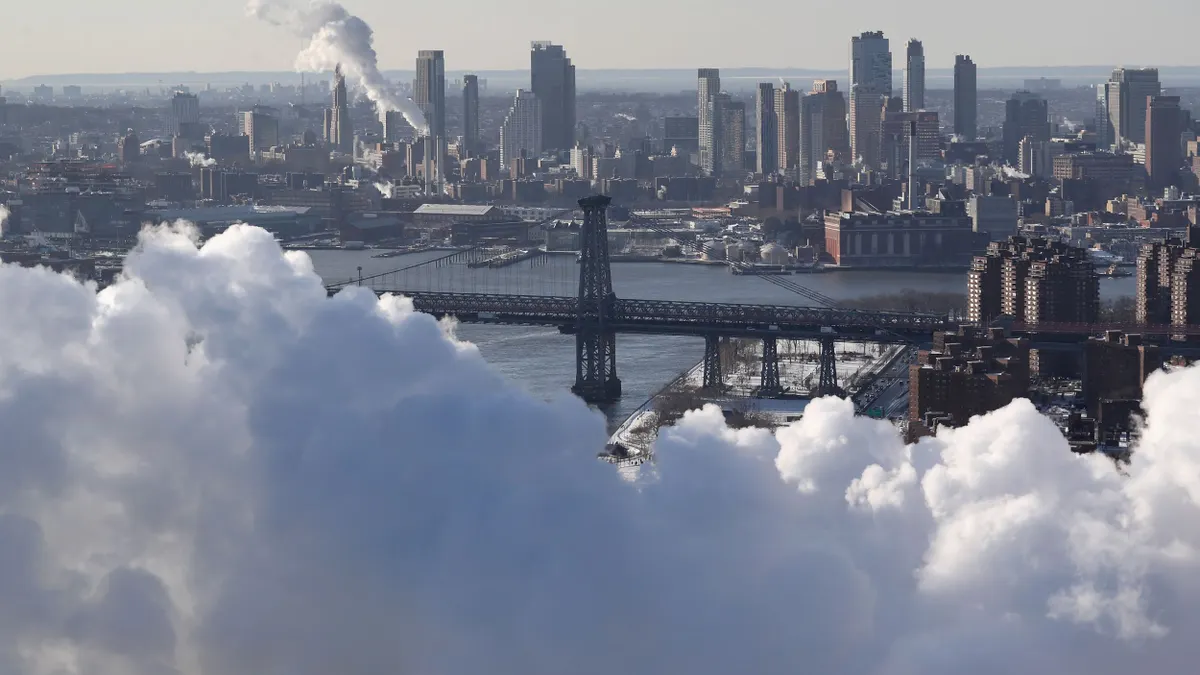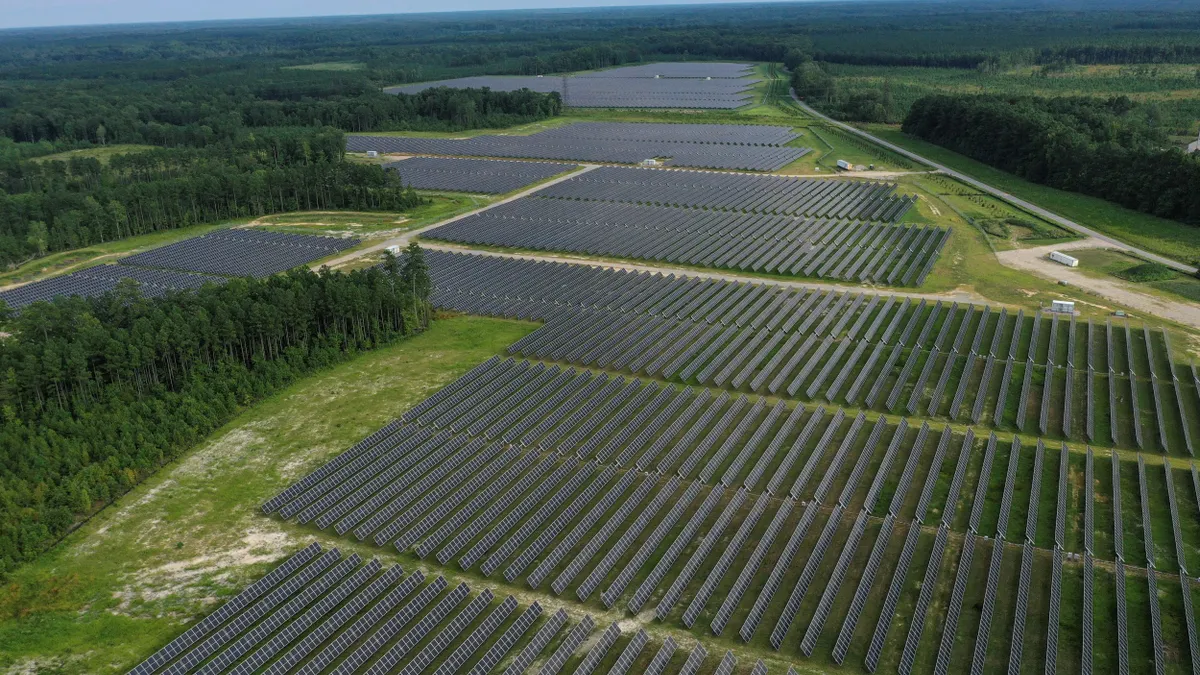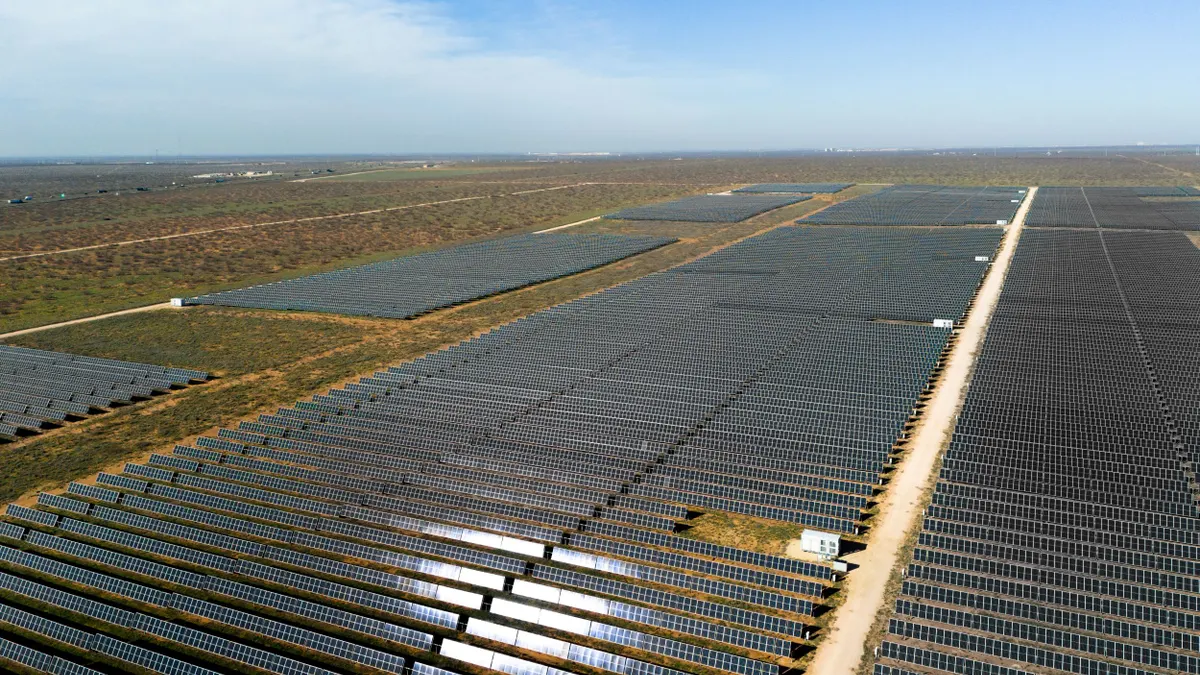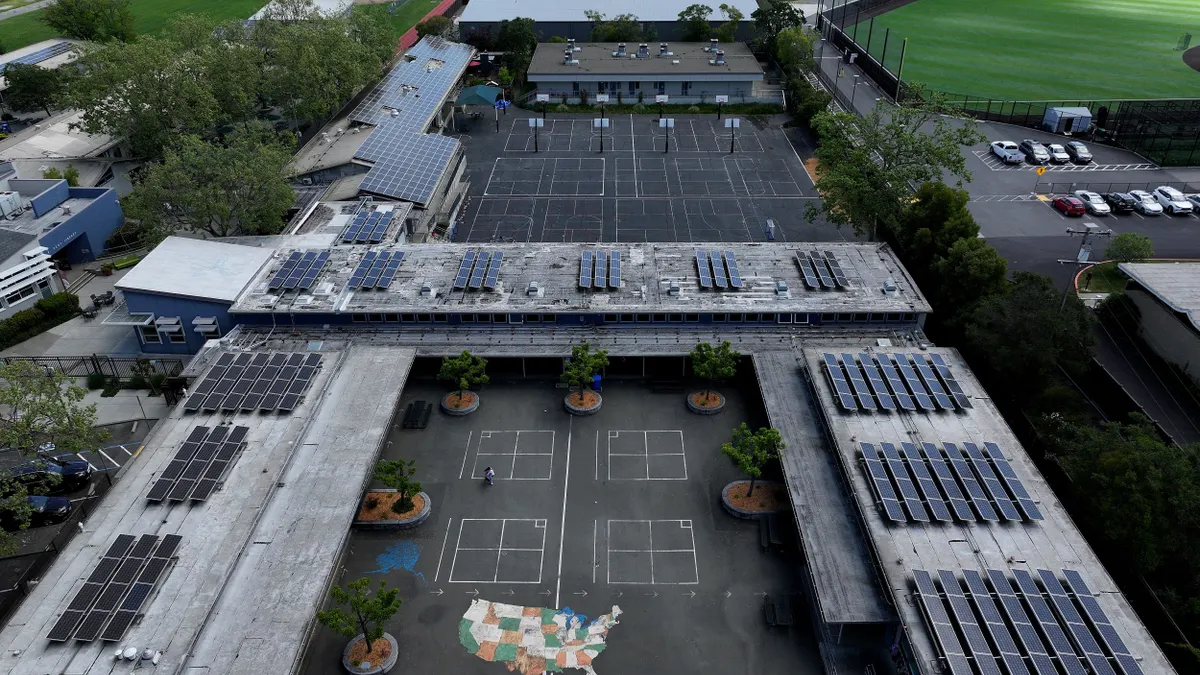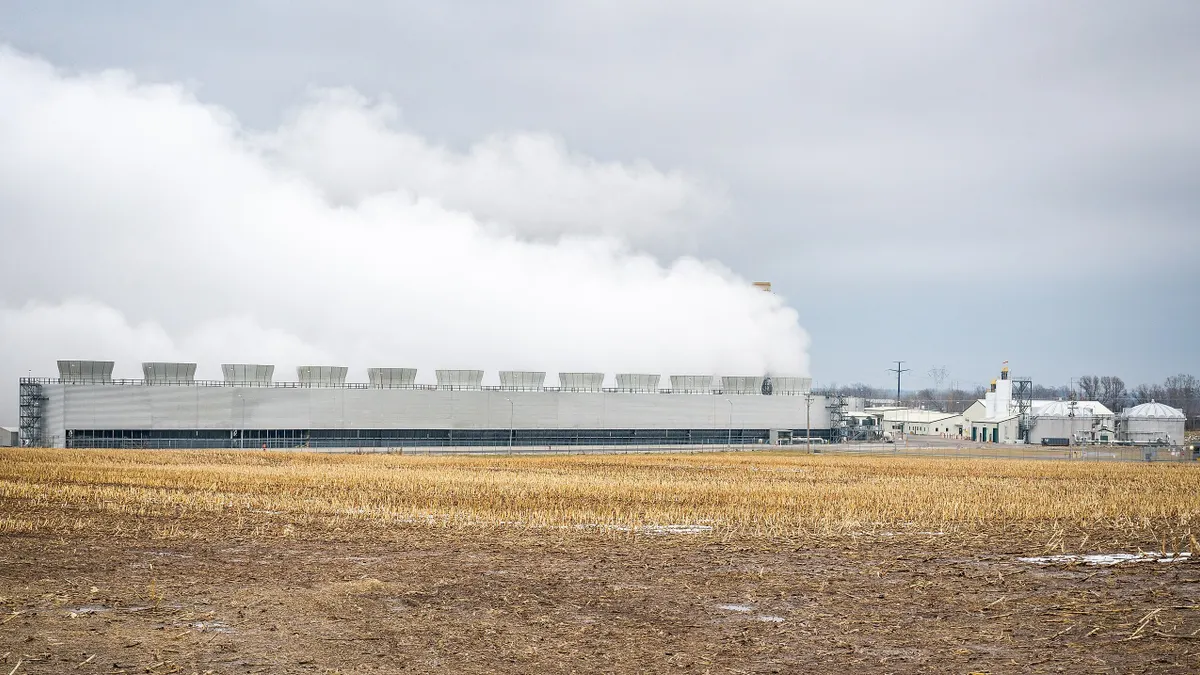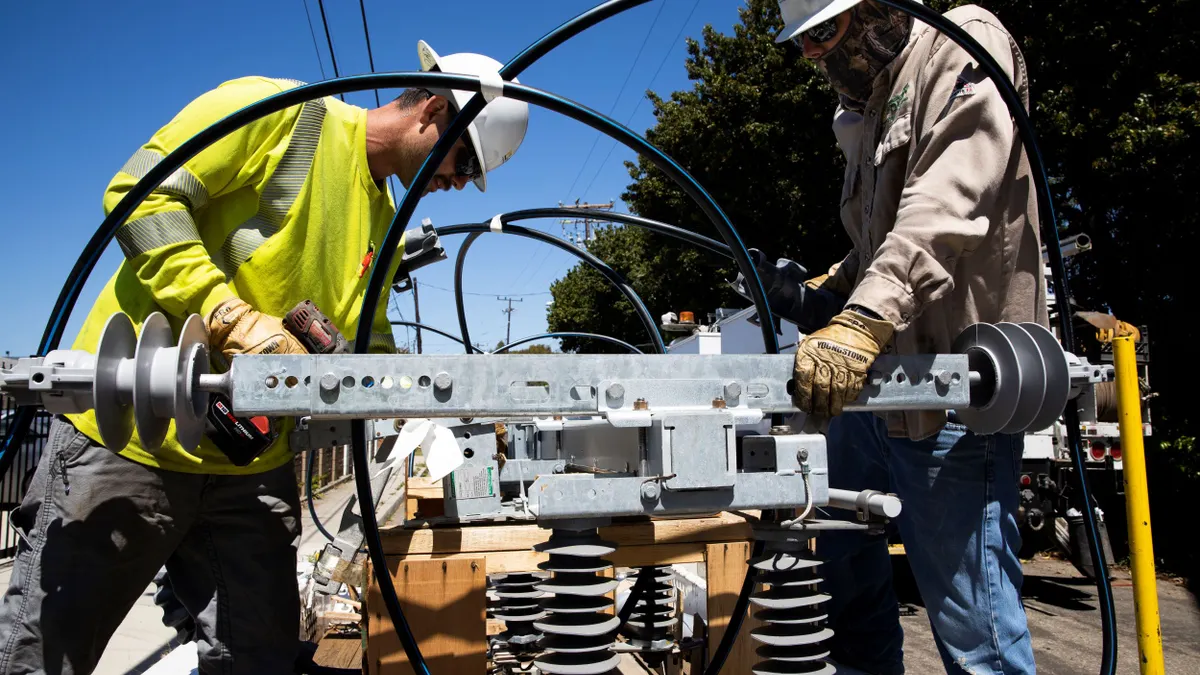The following is a viewpoint from Alex Gilbert, cofounder of SparkLibrary.
After months of waiting for DOE’s controversial baseload study, with political lobbying and leaked reports galore, the energy world was braced for a groundbreaking study. Clean energy advocates worried that DOE was going to issue an inaccurate study claiming intermittent renewables were killing reliable baseload energy.
From their view, there were several reasons to be concerned:
- Secretary Perry’s rhetoric in the memo requesting the study
- The industry-bought nature of the current administration
- The lack of coordination between the report writers and the actual people that run the grid, like ISOs or NERC or almost any other electric institution
- General industry and political rhetoric surrounding the report.
Instead, the study that DOE finally released two weeks ago was…. boring.
Of the eight policy recommendations, five suggested that DOE or other federal entities do what they are already doing. Meanwhile, another two, “energy dominance” and infrastructure development, are largely about emphasizing the administration’s goals rather than providing any reason or pathway to fulfill those goals.
The final one, improved electric-gas coordination is a mixture of both: it suggests FERC and DOE do what they are already doing but also suggests that both agencies approve LNG export and cross-border natural gas pipeline applications to benefit commodity markets. The report does not otherwise discuss natural gas exports in any meaningful way so the latter part of this suggestion is completely unfounded.
These suggestions aside, the analysis of the report is neither new nor ground breaking. Apparently, as part of not knowing what DOE does, Secretary Perry did not read DOE’s masterful Quadrennial Energy Review. [1] Nor does he seem aware of FERC’s excellent primer on US energy markets. [2] Nor NERC’s long term reliability assessment. [3] Nor NAS’ recent study on Electric Sector resiliency. [4]
If he had read any of these, he would not have asked DOE staff to duplicate the work performed in those excellent analyses.
Please excuse my flippant and perhaps harsh tone. The DOE’s study is well written and well-researched. It is an excellent primer on how U.S. energy markets function in both theory and practice. If you have not followed the electric industry before, it is a great place to start. The focus on retirements is a new take, especially with well-selected data and graphics.
Like many reports or studies in energy, the chief problem with this study is not the study itself. Rather, it is the way this study will be used politically in ways that have no founding in its analysis or findings.
In a recent FERC confirmation hearing, a Congressman discussed how the study identified the need for financial support for coal and nuclear plants. [5] Meanwhile, the acting FERC Chairman is likely to tell Congress that FERC is examining new ways of valuing “essential reliability services”, a key term used throughout the DOE study. [6]
Essentially, despite the study finding reliability is not threatened by retirements, politicians and industry are trying to use it to create a reason to support coal financially (and, to a much smaller degree, nuclear).
Given the high-profile nature of DOE’s study, many people have already commented on it:
- David Roberts from Vox notes the study finds that renewables do not reflect reliability and that concerns about political interference were largely unrealized (potentially due to the leaked draft); [7]
- Stephen Lacey and Julia Piper from Greentech Media argue that every part of the electric industry can find parts of the report that favor their preset positions; [8]
- Ray Gifford, a partner at law firm Wilkinson, Barker and Knauer, highlights how the report revealed ongoing tensions between state and federal policies for energy and environmental reasons; [9]
- Utility Dive reporter Herman Trabish discusses how the report largely ignores the reliability and resiliency benefits of existing and new transmission, an absurd oversight in a reliability/resiliency study; [10]
- Finally, Rocky Mountain Intitute's Mark Dyson [11] and Tanuj Deora from Smart Electric Power Alliance [12] argue that new energy resources (especially distributed generation) can provide reliability and resiliency services that were largely overlooked in DOE’s study.
Both these and the many other articles on DOE’s report are useful and insightful. However, I want to highlight two interrelated points that I have not seen comprehensively discussed elsewhere.
First, DOE’s treatment of resilience is superficial at best and, considering the politicized nature of this report, negligent at worst. Second, DOE’s report on the future reliability and resiliency omits many of the most serious future threats to reliability and resiliency.
When Secretary Perry originally requested DOE’s study, his memo and subsequent coverage identified the study as a “baseload study”. Although the memo did mention reliability and resilience, the politically laden nature of the term “baseload” was behind many concerns that the study would be a renewable ‘hit job’.
As the final report correctly points out, many coal plants are no longer run as baseload facilities. Indeed, the report even alludes to the emerging argument that baseload is no longer need in a high renewable energy world. Rather, flexible dispatch at lower capacity factors is sufficient to maintain reliability.
Accordingly, while the baseload rhetoric is still present in the report and some coverage, the prevailing theme of the report’s coverage is now resiliency.
Reliability and resiliency are closely related but remain distinct.
As the report notes, NERC defines reliability as a mix of adequacy and operating reliability. Effectively, reliability is the ability to supply electricity at all times during normal, reasonably foreseeable operations of the electric grid:
- Short term reliability entails developing a grid system that can meet demand in light of large short term variations in supply and demand (its imprecise, but think DA/RT markets and ancillary services)
- Long term reliability is about ensuring there are sufficient resources developed to maintain short term reliability down the road (again imprecise, but think reserve margins and capacity markets)
Historically, while there are many non-electric factors that can impact electricity reliability, most regulatory, policy, and rhetorical focus on electric reliability largely deals with the grid and electric institutions. Energy supply disruptions, like the natural gas pipeline constraints the study identifies, impact reliability but are not typically treated as such from a policy perspective.
Resilience, as the study correctly defines it, is the ability of electric infrastructure to “reduce the magnitude and/or duration of disruptive events”. When a system is insufficiently resilient, reliability problems can occur, leading to blackouts.
Although it is imprecise, resilience can be thought of as non-electric factors that impact grid operations, such as severe weather or cyber or physical attacks. Energy supply disruptions that occur due to disruptive events would certainly qualify but things like insufficient pipeline capacity would not.
Again, not be to flippant, but that’s about the extent of the study’s discussion of resilience. The subsection dealing specifically with system resilience is barely a page and a half; it largely focuses on natural gas, coal, and nuclear disruptions during the polar vortex and Hurricane Sandy. I’ll repeat again for emphasis: DOE’s 187 page “resilience” study is less than 1% explicitly about resilience.
To be fair, the study’s discussion of reliability does include many factors that may be better defined as resilience. However, the treatment is neither comprehensive nor particularly compelling. One anonymous DOE official was apparently quoted as saying the study largely conceptualized resilience as fuel supply, which is just wrong.
If this study’s discussion of resilience leads to coal subsidies, it is not because the study finds coal is better for system resilience. It would be because the coal industry and their bought politicians were unable to use either the “baseload” myth or reliability as sufficient justifications for subsidies.
Which brings me to my second major point: DOE’s study omits analysis of many major factors that will impact future system reliability and resilience.
First, the study’s treatment of natural gas supply is a partial omission.
DOE’s study discusses how the polar vortex, ISO-NE’s pipeline constraints, and California’s Alison Canyon disaster illustrate how issues with natural gas supply can threaten system reliability.
The study, however, does not note discuss natural gas supply constraints comprehensively. Constraints are emerging because the electric industry has largely used existing natural gas infrastructure that was originally developed to meet LDC and other non-electric gas demand. New natural gas infrastructure is needed to continue the ongoing coal-to-gas shift, but without specific regulatory and policy reforms, there are major barriers to doing so, as ISO-NE’s recent issues highlight.
Of all issues discussed in the study, issues with natural gas supply and infrastructure may pose the most serious emerging threat to reliability and system resiliency. However, the study pulled its punches here; politically, Republicans can’t attack their natural gas contributors for the sake of their coal contributors.
Second, the study ignores both physical and cyber grid security, which have long been neglected. Unfortunately, physical grid security remains broadly ignored as a regulatory and policy issue. Considering that if you are reading this you probably know enough to take down a power grid with an AK-47 or a balloon, this is a problem.
The study literally does not look at cyber because there is an upcoming DOE-DHS report on it. This oversight is egregious if policymakers use this study to make decisions based on resilience concerns. Coal and nuclear generators are much more vulnerable than clean energy resources to cyber attacks: U.S. electric companies have already been targeted by the Russians. [13] Undoubtedly, energy market outcomes will impact our cyber vulnerabilities, so the lack of analysis is disappointing.
Third, and finally, the study ignores climate change completely.
Considering that the extreme weather events discussed in the study, Hurricane Sandy and the Polar Vortex, are related to climate change, this oversight is almost certainly intentional.
As much as 5% of the U.S. population have experienced electric outages in the last two weeks due to Hurricanes Harvey and Irma. Some may not have power returned for weeks or months. Climate change resilience is a key system trait that wholesale and regulated markets need to address. This study offers no insights here and, to the degree it politically enables subsidization of coal plants, will worsen system resilience.
All of this is really to say that, despite DOE’s unnecessary and redundant study, the lights will stay on today, tomorrow, and for the future. Unless there is a major cyber attack, physical attack, combined attacked, climate-induced extreme weather, energy market supply disruption, or unnecessary partisan interference in a largely non-political industry. I await Secretary Perry requesting studies on all of these major issues.
[1] https://energy.gov/epsa/initiatives/quadrennial-energy-review-qer
[2] https://www.ferc.gov/market-oversight/guide/energy-primer.pdf
[3] http://www.nerc.com/pa/RAPA/PA/Performance%20Analysis%20DL/SOR_2017_MASTER_20170613.pdf
[4] https://www.nap.edu/read/24836/chapter/1
[5] http://www.utilitydive.com/news/doe-grid-study-dominates-ferc-nomination-hearing/504548/
[6] http://www.utilitydive.com/news/ferc-evaluating-enhanced-baseload-compensation-chatterjee-writes/504752/
[7] https://www.vox.com/energy-and-environment/2017/8/24/16195620/rick-perry-grid-study-nothingburger
[8] https://www.greentechmedia.com/articles/read/the-energy-departments-grid-study-is-a-rorschach-test-for-the-future-of-the
[9] http://www.utilitydive.com/news/doe-grid-study-offers-no-panaceas-to-struggling-nuclear-and-coal-plants/504654/
[10] http://www.utilitydive.com/news/transmission-the-unsung-hero-of-the-doe-grid-reliability-study/504120/
[11] http://www.utilitydive.com/news/choosing-the-right-grid-infrastructure-in-the-wake-of-the-doe-grid-study/504462/
[12] http://www.utilitydive.com/news/rethinking-the-meaning-of-reliability-and-resiliency-in-the-wake-of-doe/504219/
[13] https://www.washingtonpost.com/world/national-security/us-officials-say-russian-government-hackers-have-penetrated-energy-and-nuclear-company-business-networks/2017/07/08/bbfde9a2-638b-11e7-8adc-fea80e32bf47_story.html?utm_term=.a400e23b4ad4






